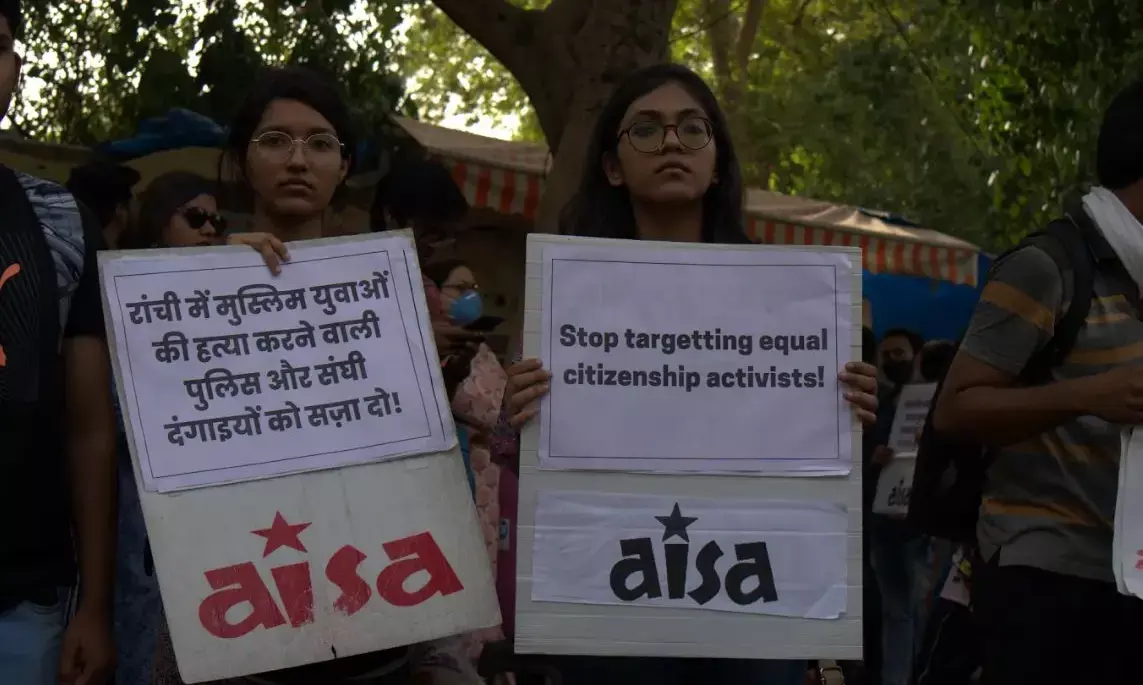Sanjay Hegde: 'Demolitions Will Not Be Stopped Unless Preventive Orders Are Passed'
'The administration tries to complete demolition before such orders are passed'

'Bulldozer' is the new word in the lexicon of India that continues to make headlines every day. City after city has been witnessing the government ordered demolitions of homes or livelihood places whose owners (or their relatives) are accused of being part of violent protests on one hand and illegal encroachment on the other.
Almost all the reported targets of these demolitions are Muslims. The latest in the series was the demolition of the two-storeyed house of social activist Javed Ahmed in Prayagraj, after he was accused by police of being "mastermind" of the June 10 protests in the city.
Ahmed is father of student activist Afreen Fatima. A plea on the matter pertaining to the destruction of their property has been filed in the Allahabad High Court. Ahmed has reportedly been arrested with the police alleging recovery of arms and papers with objectionable comments from his residence.
This followed the series of demolitions reported from Saharanpur. And barring some feeble voices coming from civil society organizations, not many seem to be speaking out. Despite many survivors saying that the authorities violated the law, the majority of the political opposition too has failed to respond, besides issuing a few statements on social media.
Are such demolitions legal or a tool of harassment? Is there anything people can do for prevention or redress? The Citizen reached out to senior Supreme Court advocate Sanjay Hegde who has been taking up matters of civil rights persistently to find answers to some of these questions.
In the context of the demolitions that have been going on in various states, do you remember anything like this having taken place in the past?
"In the past there have been demolitions in the case of Sanjiv Bhatt and also of Atiq Ahmed that I can recall. But such collective punishment or demolition as a matter of punishment is unknown.
In the case of Bhatt it was the violation of Municipal Laws that was alleged. In the case of Ahmed it was the Gangsters' Act that was invoked. Under what provision the demolition was carried out I am not sure. Though there is a provision for attachment of property, demolition of the property does not seem to be provided for.
Demolitions as reprisals are unknown. Even if there was a law made to authorize such an act it has to be reasonable, fair and just. Presently there is no such procedure and no such practice."
Why are the courts quiet on what is going on?
"I won't respond to what the courts do. It is all about whether anybody approaches the courts and whether such matters come up before them. There are subsequent challenges that come up. There can be compensation awarded, based upon the legality of such demolitions.
The only instance that comes to mind where a demolition was prevented is that of the Supreme Court staying the orders of demolition in Jahangirpuri in Delhi. It was because the aggrieved party managed to file a petition and the action was stayed initially by the Chief Justice and later by a bench of Justice LN Rao and Justice BN Gavai. The matters are still pending in the Supreme Court.
But in the case of Allahabad demolition, I am not aware if attempts were made to move the High Court on a holiday or whether it came up before the demolitions.
After a demolition has happened, there can only be a post facto review of legality. If the act is found to be illegal only then there is the order of compensation. But even such an order of compensation by the High Court is open to further proceedings in the Supreme Court. This is a lengthy procedure.
The demolitions will not be stopped unless preventive orders are passed. The administration tries to complete demolition before such orders are passed."
What about the role of the lower judiciary in such a scenario?
"If there are wrong allegations of irregularity under the Municipal Laws a person can approach the District Courts on the notice of demolition and the Courts can order relief."
Where lies the hope for a common man in the present scenario?
"Hope I cannot say. A lot can be drawn from the famous quote of Justice Learned Hand of US Federal Court that says, 'Liberty lies in the hearts of men and women; when it dies there, no constitution, no law, no court can save it; no constitution, no law, no court can even do much to help it. The spirit of liberty is the spirit which is not too sure that it is right; the spirit of liberty is the spirit which seeks to understand the minds of other men and women; the spirit of liberty is the spirit which weighs their interests alongside its own without bias'."
Cover Photograph: Protest in Delhi. Danish Pandit



